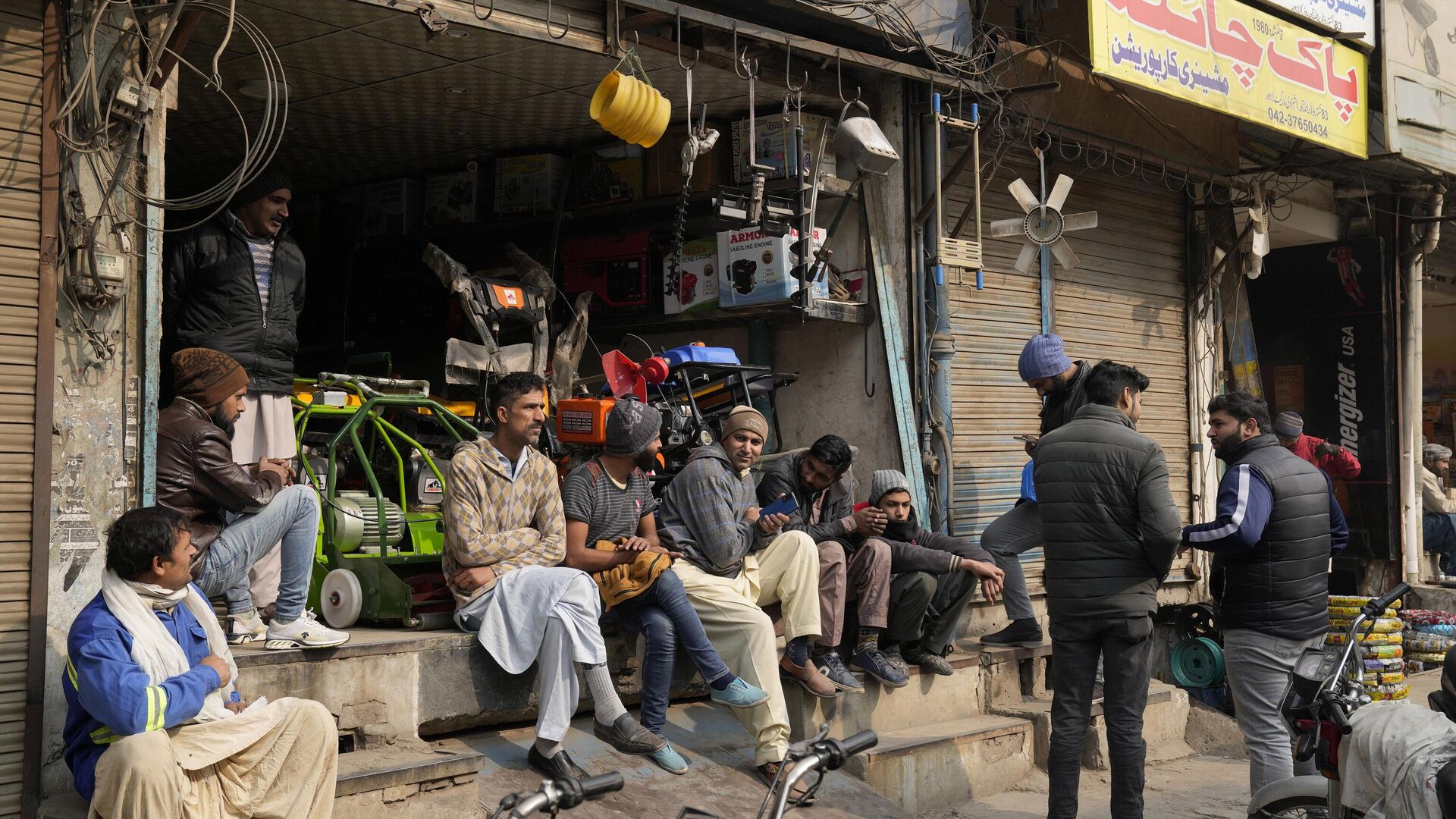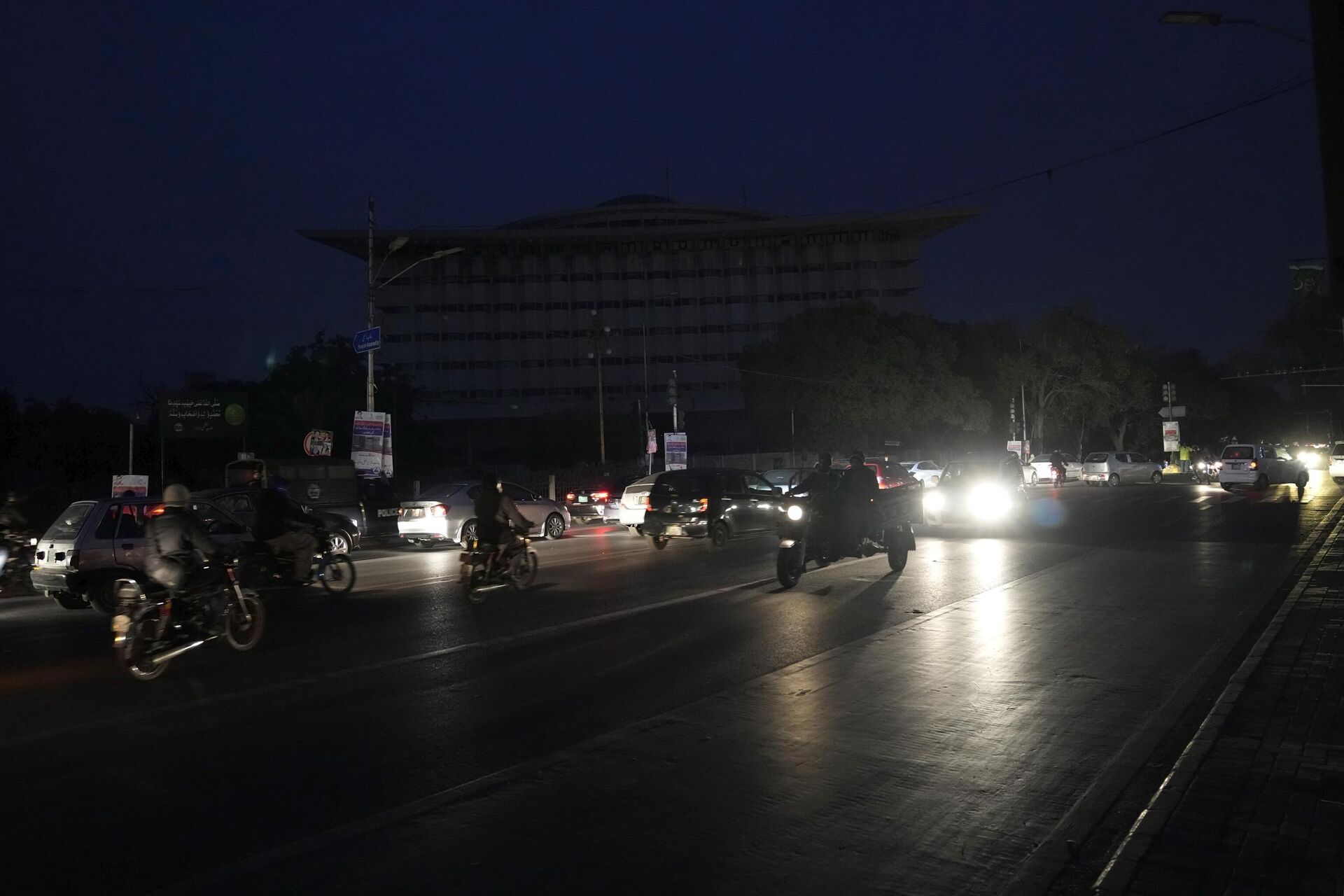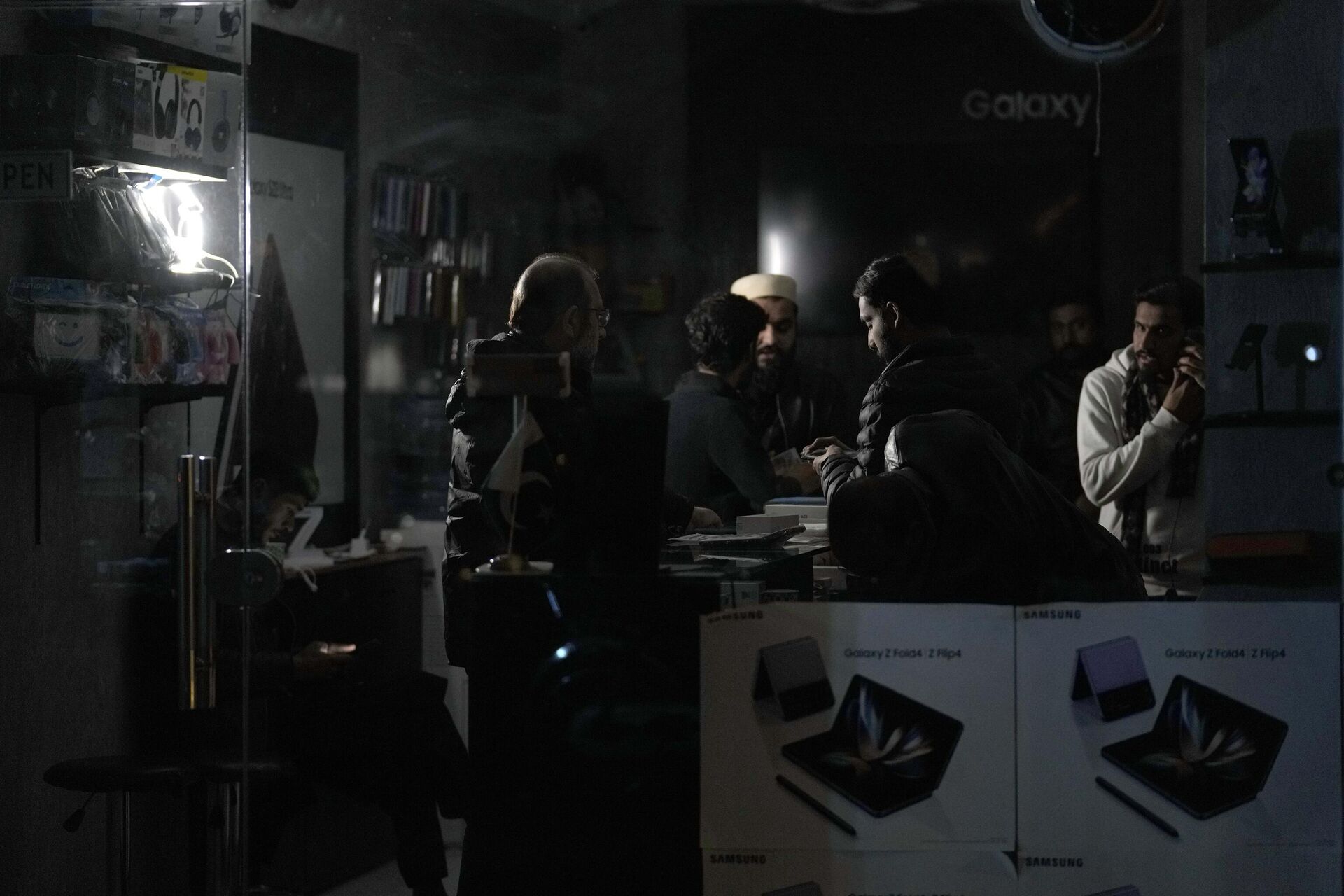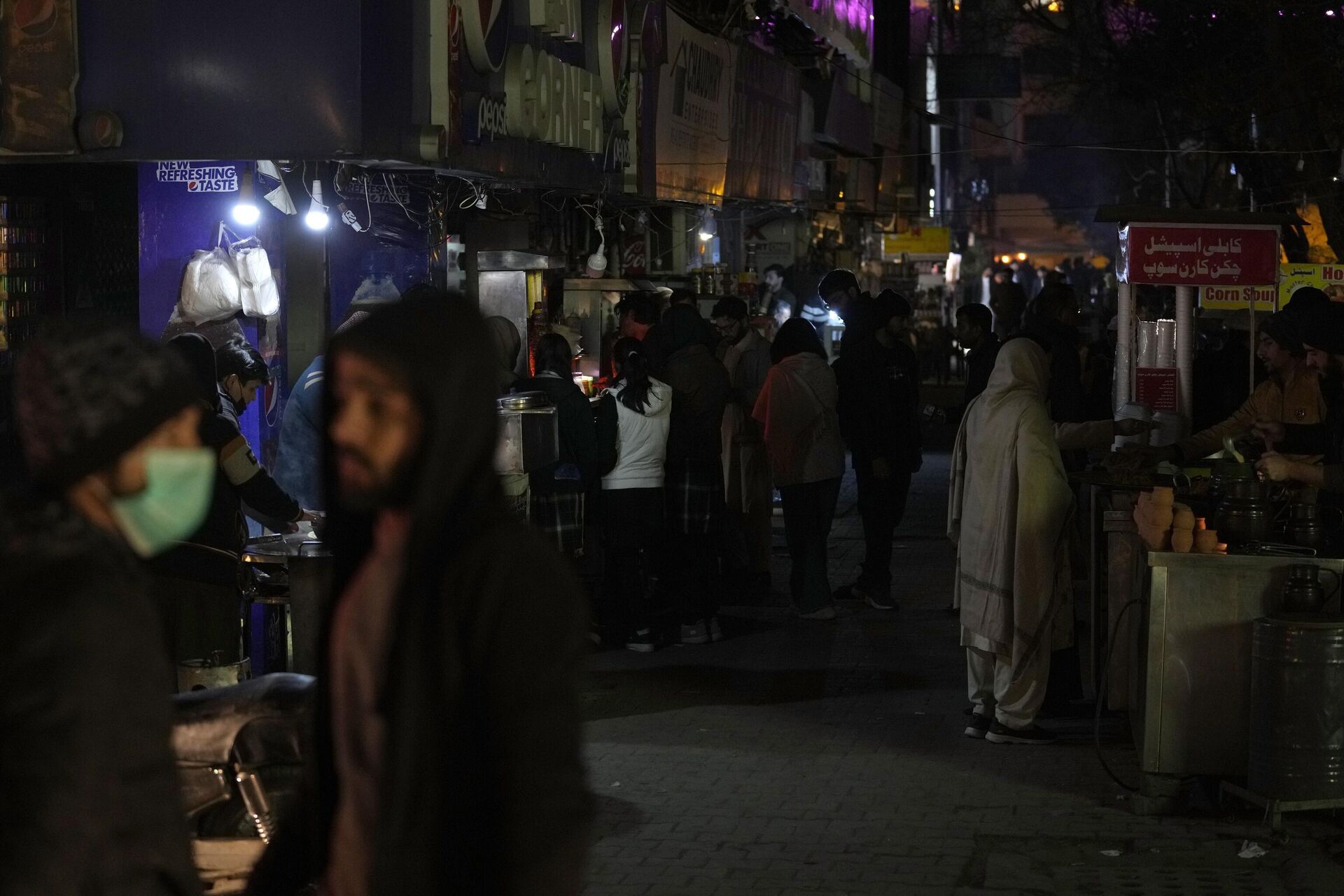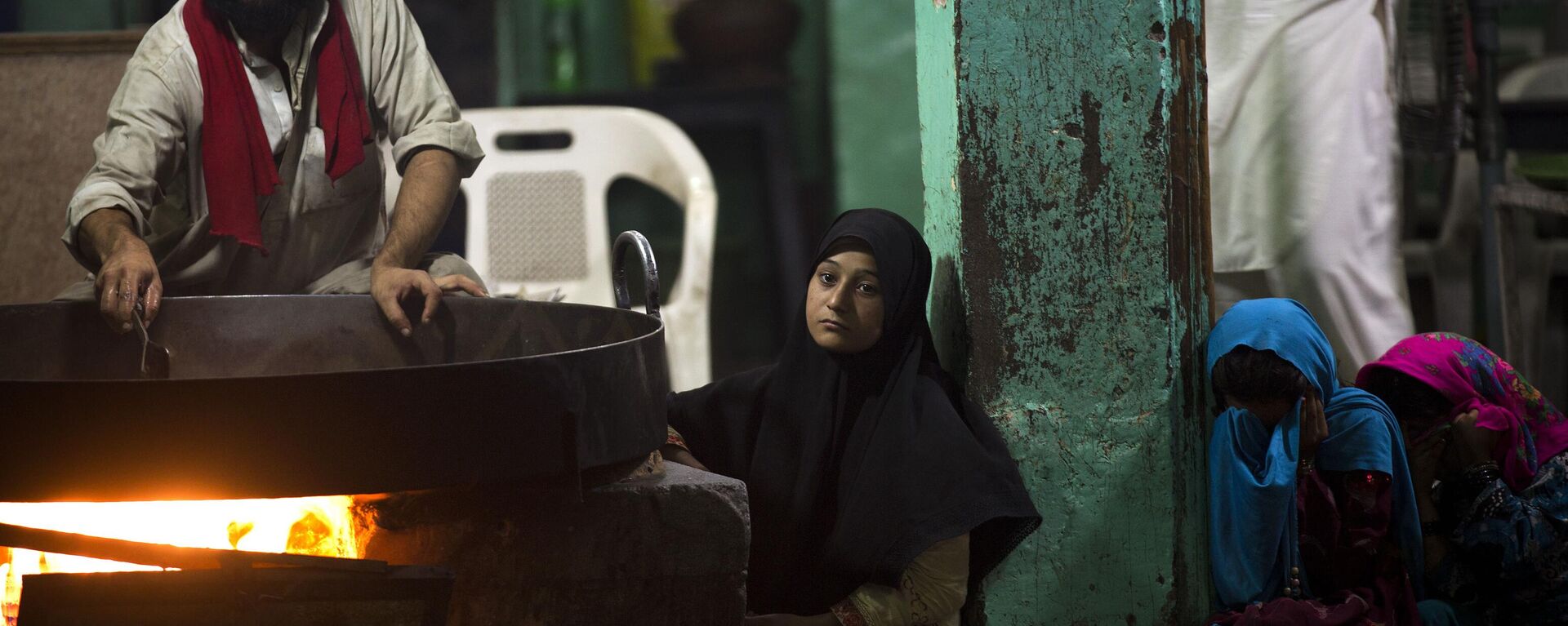https://sputniknews.in/20230904/bills-exceed-earnings---thousands-of-traders-close-shops-over-soaring-energy-costs-in-pakistan--4019157.html
'Bills Exceed Earnings' - Thousands of Traders Close Shops Over Soaring Energy Costs in Pakistan
'Bills Exceed Earnings' - Thousands of Traders Close Shops Over Soaring Energy Costs in Pakistan
Sputnik India
Pakistani traders and small business owners closed down their shops over the weekend in a protest over high electricity bills and rising inflation as growing discontent hits the country of 240 million.
2023-09-04T22:19+0530
2023-09-04T22:19+0530
2023-09-04T22:19+0530
pakistan
south asia
economic crisis
imf loan
protests
sputnik exclusives
lahore
shehbaz sharif
power tariff
https://cdn1.img.sputniknews.in/img/07e7/01/17/601006_0:160:3073:1888_1920x0_80_0_0_508589f9569cbec237cdd7c9548aa9a7.jpg
Sputnik India spoke with small business owners and civilians who shared their frustrations over the price surge.The usual hustle and bustle of Pakistani bazaars came to a standstill on Saturday across the major cities of Lahore, Karachi, Islamabad, Peshawar, and Multan. The shuttered shops had placards up which read "Due to the unreasonable increase in electricity bills and taxes, we are closed".For years now, Pakistan's economy has been plummeting due to a range of factors, such as corruption and mismanagement of funds. Each year, Pakistan has been receiving loans from foreign countries and organizations to cope with rising inflation; however, this year the country almost faced a default and Islamabad was forced to make a deal with the International Monetary Fund (IMF) to avoid it.The IMF being a global lender demanded that popular subsidies on living costs be cut down, and when the government did so earlier this year, the petrol, gas, and electricity prices skyrocketed.A small electronics shop owner from Lahore, Hassan Murtaza, spoke with Sputnik India, saying that his shop was also closed on Saturday, as it is now barely making enough to sustain operations.He went on to say, "This month my electricity bill came and it was double than in the previous months. If I turn off the fans, AC and disconnect my electronics, no one will shop here and people will go to the nearby shop. We have competition amongst ourselves as shopkeepers, because this is our sole source of income. But honestly, I am now spending more than I am earning, and with rising electricity bills each month, I feel like I am running out of options here."Last Wednesday, Interim Finance Minister Shamshad Akhtar told members of Pakistan’s upper house of parliament that the country has no “fiscal space” to secure any immediate relief to the public. She went on to warn there could be a further increase in tariffs.These statements were met with a wide outcry from the public, as people took to the streets burning their electricity bills. Videos circulating on social media show hundreds of people gathering in cities and towns across the country chanting slogans, demanding change, and burning their bills.Many civilians like Jawad are facing similar issues as the rising cost of electricity is forcing many to alter their lifestyle and adjust to the new reality.Running Out of OptionsMeanwhile, Lahore’s Township Traders Union President Ajmal Hashmi, in a statement to the press, said that traders from across many cities are taking part in the protests because the situation is becoming unbearable.Protests in Khyber-Pakhtunkhwa ProvinceIn the Malakand and Hazara divisions in the northern province of Khyber-Pakhtunkhwa, traders and transporters also called for a closure of markets and a halt in transport in protest against the electricity bills over the weekend.These two regions are home to many big cities and small towns, where frustration over promises made to international organizations like the IMF have been causing much distress to millions of people.Government officials in these regions have repeatedly said that such commitments put the lives of impoverished individuals in danger, as people are driven to the brink of suicide.Shujat Ali, president of the Shangla trade union, said the government’s actions had left civilians with no option but to go on strike. He stressed that it was time to push the government to show compassion for the struggling masses, as people have finished their resources, sold their family valuables, and are now left with depression and thoughts of self-harm.
https://sputniknews.in/20230827/a-rare-commodity-will-pakistan-be-left-with-no-gas-by-winter-3853622.html
pakistan
south asia
lahore
Sputnik India
feedback.hindi@sputniknews.com
+74956456601
MIA „Rossiya Segodnya“
2023
Aneela Rashid
https://cdn1.img.sputniknews.in/img/07e6/0c/0d/74548_0:0:485:484_100x100_80_0_0_821526e967ae85d041e2d30ee34fa1de.jpg
Aneela Rashid
https://cdn1.img.sputniknews.in/img/07e6/0c/0d/74548_0:0:485:484_100x100_80_0_0_821526e967ae85d041e2d30ee34fa1de.jpg
News
en_IN
Sputnik India
feedback.hindi@sputniknews.com
+74956456601
MIA „Rossiya Segodnya“
Sputnik India
feedback.hindi@sputniknews.com
+74956456601
MIA „Rossiya Segodnya“
Aneela Rashid
https://cdn1.img.sputniknews.in/img/07e6/0c/0d/74548_0:0:485:484_100x100_80_0_0_821526e967ae85d041e2d30ee34fa1de.jpg
thousands of traders close shops over soaring energy costs in pakistan, poewr outage in pakistan, what caused pakistan power outage, how long was the power out in pakistan, what is the electricity deficit in pakistan, how many people are without electricity in pakistan
thousands of traders close shops over soaring energy costs in pakistan, poewr outage in pakistan, what caused pakistan power outage, how long was the power out in pakistan, what is the electricity deficit in pakistan, how many people are without electricity in pakistan
'Bills Exceed Earnings' - Thousands of Traders Close Shops Over Soaring Energy Costs in Pakistan
Pakistani traders and small business owners closed down their shops over the weekend in protest over high electricity bills and rising inflation as growing discontent hits the country of 240 million.
Sputnik India spoke with small business owners and civilians who shared their frustrations over the price surge.
The usual hustle and bustle of Pakistani bazaars came to a standstill on Saturday across the major cities of Lahore, Karachi, Islamabad, Peshawar, and Multan. The shuttered shops had placards up which read "Due to the unreasonable increase in electricity bills and taxes, we are closed".
For years now, Pakistan's economy has been plummeting due to a range of factors, such as corruption and mismanagement of funds. Each year, Pakistan has been receiving loans from foreign countries and organizations to cope with
rising inflation; however, this year the country almost faced a default and Islamabad was forced to make a deal with the
International Monetary Fund (IMF) to avoid it.
The IMF being a global lender demanded that popular subsidies on living costs be cut down, and when the government did so earlier this year, the petrol, gas, and electricity prices skyrocketed.
A small electronics shop owner from Lahore, Hassan Murtaza, spoke with Sputnik India, saying that his shop was also closed on Saturday, as it is now barely making enough to sustain operations.
"Last year, I was making good profit as the customers were coming day and night. I have all sorts of things in my shop, from the latest cell phones to cables, phone accessories and SIM cards, etc. I can't welcome my customers into a dark and dingy shop, so I have lights, air conditioner, small coffee machine, and other amenities that my customers enjoy", Murtaza said.
He went on to say, "This month my electricity bill came and it was double than in the previous months. If I turn off the fans, AC and disconnect my electronics, no one will shop here and people will go to the nearby shop. We have competition amongst ourselves as shopkeepers, because this is our sole source of income. But honestly, I am now spending more than I am earning, and with rising electricity bills each month, I feel like I am running out of options here."
Last Wednesday, Interim Finance Minister Shamshad Akhtar told members of Pakistan’s upper house of parliament that the country has no “fiscal space” to secure any
immediate relief to the public. She went on to warn there could be a further increase in tariffs.
These statements were met with a wide outcry from the public, as people took to the streets burning their electricity bills. Videos circulating on social media show hundreds of people gathering in cities and towns across the country chanting slogans, demanding change, and burning their bills.
"A few months ago, my electricity bill was higher than usual 32,000 rs ($71) and this month when I received my bill, I almost screamed. It was 56,000 rs ($181), and this is keeping in mind that I have almost stopped using my air conditioner during the day, only using it when sleeping at night. Otherwise my children keep crying because it is too hot. It is honestly a nightmare for us", a school teacher from Lahore, Hina Jawad, told Sputnik India.
Many civilians like Jawad are facing similar issues as the rising cost of electricity is forcing many to alter their lifestyle and adjust to the new reality.
"People are definitely angry and feeling quite hopeless because the government cannot provide relief any time soon. Civilians are taking to the streets but the local media channels try to play it down. Even if people burn their electricity bills, they still have to pay them. So it is just a symbolic gesture, but in reality it doesn't change the fact that millions of Pakistanis are really struggling", a business owner, Arsalan Khalid shared with Sputnik India.
Meanwhile, Lahore’s Township Traders Union President Ajmal Hashmi, in a statement to the press, said that traders from across many cities are taking part in the protests because the situation is becoming unbearable.
"Some relief must be given so people can put food on the table", Hashmi added.
Protests in Khyber-Pakhtunkhwa Province
In the Malakand and Hazara divisions in the northern province of Khyber-Pakhtunkhwa, traders and transporters also called for a closure of markets and a halt in transport in protest against the electricity bills over the weekend.
These two regions are home to many big cities and small towns, where frustration over promises made to international organizations like the IMF have been causing much distress to millions of people.
Government officials in these regions have repeatedly said that such commitments put the lives of impoverished individuals in danger, as people are driven to the brink of suicide.
Shujat Ali, president of the Shangla trade union, said the government’s actions had left civilians with no option but to go on strike. He stressed that it was time to push the government to show compassion for the struggling masses, as people have finished their resources, sold their family valuables, and are now left with depression and thoughts of self-harm.
